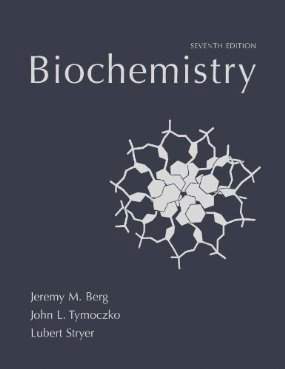Connecting...

For more information, please see full course syllabus of Biochemistry
Biochemistry Glycolysis III
This lecture covers the mechanisms of steps 5 – 10 of glycolysis. Step five converts dihydroxyacetone phosphate to glyceraldehyde 3-phosphate. Step six oxidizes glyceraldehyde-3-phosphate to 1,3-bisphosphoglycerate (BPG) using enzyme glyceraldehyde-3-aldehyde dehydrogenase. Step seven is the phosphoryl transfer from BPG to form ATP via nucleophilic substitution using phosphoroglycerate kinase. Step eight converts 3-phosphoglycerate to 2-phosphoglycerate, a reaction involving two nucleophilic substitutions catalyzed by phosphoglycerate mutase. Step nine is the dehydration of 2-phosphoglycerate to form phosphoenol pyruvate. The final step involves the substrate-level transfer of a phosphoryl group to ADP, which forms ATP. The lecture ends with the overall “balance sheet” for glycolysis, covering the electrons, phosphoryl groups, and carbons involved.
Share this knowledge with your friends!
Copy & Paste this embed code into your website’s HTML
Please ensure that your website editor is in text mode when you paste the code.(In Wordpress, the mode button is on the top right corner.)
- - Allow users to view the embedded video in full-size.










































 Answer Engine
Answer Engine




0 answers
Post by Sara Tee on September 21, 2020
Hello prof Raffi,
I finished watching the entire Metabolism series. I tried to string things together. I have one question regarding the reduction of NAD+. You know how there is always an H+ as the product of NAD+ reduction (NAD+ --> NADH + H+). For some reaction such as reaction 3 in Citric acid cycle (oxidation of Isocitrate to alpha-ketoglutarate), I understand the H+ comes from the H on the O of the HO-C-H (NAD+ get the Hydride attached directly to the C).
However, for reaction 6 of glycolysis, the area that reduce NAD+ was not HO-C-H; it is rather H-C=O. I can see the Hydride on the substrate that reduces NAD+; I don't know where the H+ come from for this particular rxn 6 of Glycolysis. Could you help me clarify?
Many thanks!
1 answer
Tue Jul 31, 2018 12:30 AM
Post by Swati Sharma on July 27, 2018
Dear Professor,
I carefully studied all the mechanisms as you were writing I was writing too . I was wondering if these mechanisms would be asked in the MCAT Biochemistry section or what kind of questions should I be prepared from on the mechanisms?. I would be grateful if you could just let me know any kind of random questions on mechanisms.
I am preparing for MCAT on my own I just hope I am doing fine. I am preparing from your detailed lectures so that I can deal with any Biochemistry passages.
Regards
Swati
1 answer
Fri Mar 28, 2014 5:32 PM
Post by Alan Delez on March 26, 2014
Hi Dr. Hovasapian,
On step 10 I was wondering why the carboxylate does not protonate